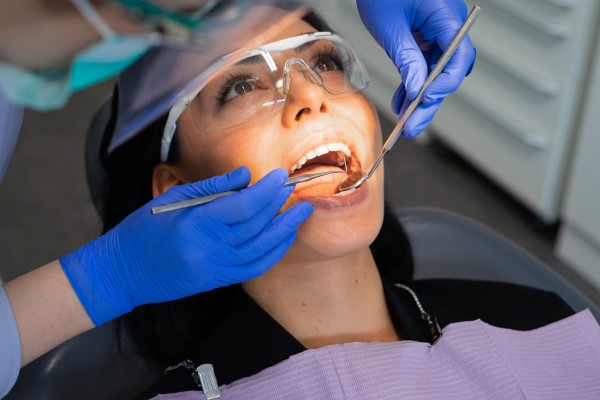When to Seek Emergency Dentistry Treatment for Toothache During COVID-19 Outbreak

The COVID-19 outbreak has limited most dental offices to only offering emergency dentistry treatment. One of the most common types of dental emergencies is a toothache, although not all toothaches require emergency care. It is important to know what signs indicate the need to seek prompt treatment for a toothache to ensure that the issue does not worsen or linger for longer than necessary.
Signs that emergency dentistry is needed
Anyone who has a toothache should examine the cause, severity and other symptoms that they experience to determine whether it requires emergency dental treatment. The following is an overview of notable signs that emergency dentistry is needed.
Severe pain
The severity of the toothache is one of the most notable indicators of whether the toothache requires emergency dentistry treatment. A minor toothache can often be managed through at-home remedies, but a more severe toothache is generally a much larger concern. Anyone who has a toothache that becomes intolerable, meaning that the pain is too severe for the person to function properly, then the person should seek emergency dentistry treatment. Additionally, any concerns with severe and painful swelling of the gums may require emergency dentistry.
A metal taste
A metal taste can suggest that a few things are wrong with one's oral health. For those who have a metal filling, the taste could be a sign that the filling has fallen out, come loose or is damaged in some way. The taste may also be the result of an oral infection or gingivitis, especially if there is bleeding. In any case, a metal taste in the mouth that exists along with a toothache should result in a call to the dentist to see if emergency dentistry treatment is necessary.
Swollen jaw
The severity of a swollen jaw that results after a toothache worsens is often overlooked. A swollen jaw often requires immediate care because it could be the result of a serious oral infection that has started to spread. This is particularly concerning if the patient also has a poor taste in the mouth and difficulty swallowing. In severe instances, there may also be a fever if the swollen jaw and toothache is the result of a salivary gland infection.
Loose tooth
There are many things that can cause a toothache, including a blow to the mouth, a dental abscess and a missing filling. Many of these causes can lead to a loose tooth, which is concerning because the tooth may become lost without emergency dentistry treatment. Any time that a loose tooth results from a toothache, it is time to call the dentist.
Learn more about emergency dentistry
COVID-19 restrictions have made it more challenging for both patients and dentists, but patients can still receive emergency dental care. If you have a severe toothache that is severe or causes any of the other notable concerns mentioned above, then get in touch with our dental team today to find out about the next step to take.
Request an appointment here: https://dentistryonpark.com or call Dentistry on Park, LLC at (781) 443-8131 for an appointment in our Stoughton office.
Check out what others are saying about our services on Yelp: Read our Yelp reviews.
Recent Posts
Maintaining optimal oral health involves more than daily brushing and flossing. Deep cleaning plays a critical role in preserving gum health and preventing long-term complications such as periodontal disease. This advanced dental procedure goes beyond routine cleaning to target bacteria and plaque beneath the gumline, helping patients maintain a healthy mouth and a confident smile.Deep…
The journey toward a straighter smile is exciting but comes with a crucial decision: Invisalign® or traditional braces? Both options have advantages, and understanding their differences can help you make an informed decision about your teeth-straightening treatment goals. It is not only about achieving a straighter smile but also about finding the path that best…
Eating with Invisalign ® aligners will be slightly different from your usual routine, but it is entirely manageable with minor adjustments. We often receive questions about eating with Invisalign, so we have answered the most common ones in this review to help you navigate this aspect of your orthodontic treatment. Understanding what patients can and…
Proper care of a dental crown is essential for maintaining its appearance, function, and longevity. A dental crown restores damaged or weakened teeth, providing durability and protection to the underlying tooth structure. Although crowns are designed to withstand chewing forces, taking specific precautions ensures their long-term success and helps maintain oral health.A dental crown acts…


